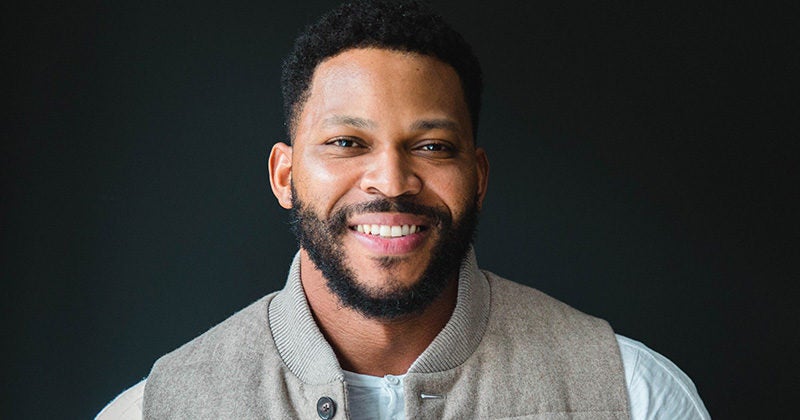
August is Black Business Month and if 2020 has taught us anything it’s that we must support our own. Created in 2004 by founders John William Templeton and Frederick E. Jordan Sr., the original intent of the 31-day effort was to drive the policy agenda impacting more than two million African-American businesses. In 2020, Facebook also began to rally behind Black businesses launching Black Business August.
“The national support of Black-owned businesses is critical to our continued success,” says Keenan Beasley, founder of the non-profit organization Venture Noire.
In a climate where aspiring Black and minority founders often can’t even get their foot through the door, let alone break through the white male-dominated gatekeepers of silicon valley, supporting Black business goes beyond buying services and goods from our own community.
The National Bureau of Economic Research recently revealed that 440,000 African American businesses were shuttered due to the economic shutdown. This is nearly 41 percent of Black-owned businesses. In contrast, 17 percent of white-owned businesses were impacted.
According to a recent RateMyInvestor and DiversityVC study, 81 percent of VC funds have no Black investors. Efforts like Beasley’s Venture Noire are crucial to navigating the startup labyrinth. Ahead, Beasley digs into the biggest barrier impacting new founders (spoiler: it’s not money) and the importance of community.
ESSENCE: What inspired you to launch Venture Noire and what was the biggest challenge that you had to overcome to get it off the ground?
Beasley: As a serial entrepreneur in New York I felt that there wasn’t a robust startup ecosystem that I felt comfortable in. We lacked the Silicon Valley vibe and tightness. After talking to other Black entrepreneurs, I found that this was true all over the country. The themes were the same: super talented entrepreneurs struggling to raise capital to grow their business, and a lack of confidence because of the process. I felt compelled to act; to help build a diverse ecosystem of resources for minority entrepreneurs to thrive in.

ESSENCE: As you know, it’s National Black Business Month. Why is this month so important to you and in what ways can we as a community show up for Black businesses?
Beasley: First, the national support of Black-owned businesses is critical to our continued success. I recently launched my hair care company Sunday II Sunday and the outpouring of support from the community has been amazing. Second, highlighting these stories starts to normalize our talents. Often times, we don’t hear from other successful Black entrepreneurs and that can make the journey intimidating or seemingly lonely. This month shows that we aren’t alone, and that’s comforting.
Black people often create the market. Our influence can be an amazing asset to building wealth.
Keenan Beasley, founder of Venture Noire
ESSENCE: As you know, Black Women founders are grossly underfunded. In what ways is Venture Noire showing support for Black women?
Beasley: We created a platform, Women in Business, to highlight Black women founders and their stories. While this has been delayed due to COVID-19, we’ve had numerous women on our digital platform carry out the same mission. One of the areas that we spend a lot of time on is monetization and scalable models. Our goal at Venture Noire is to ensure that our entrepreneurs are ready to scale their businesses and can confidently speak to investors if that step is desired.
ESSENCE: What are some of the biggest barriers Black and brown communities must overcome when launching their own businesses and what advice do you have for them?
Beasley: The biggest barrier is usually just getting the confidence to start. The hardest step oftentimes is the first one. Our community is all about making the process more familiar for anyone considering starting a business. One of the things I find to be most helpful to early-stage entrepreneurs is identifying their community or ecosystem of other like-minded individuals. Startup density breeds successes, so I encourage every entrepreneur to surround themselves with other entrepreneurs.
ESSENCE: What are your thoughts on the Wealth Gap and in what ways can Black business ownership change our trajectory for the better?
Beasley: Business ownership is critical to helping close the wealth gap, especially in the digital and tech space where assets can be created overnight. Wealth building comes with high-value exits (sales or IPOs) which are often driven by market growth potential. What’s great about this is that Black people often create the market. Our influence can be an amazing asset to building wealth.
In addition, we need a high density of businesses and an inclusive investment market. It’s a proven fact that diverse businesses are more profitable, but proximity to capital is often a barrier to growth. This paradigm combined with the recent state of the world has put impact investing on a critical path.
ESSENCE: Despite the increased attention on Black entrepreneurship in recent years, Black businesses have always played a major role in our communities. Can you tell me about some of the Black entrepreneurs—dead or alive—who’ve inspired you and why?
Beasley: I’ve been inspired over the years by all the many Black entrepreneurs from Stephen Smith to Madam C.J. Walker because of their sheer resilience, grit and work ethic. To overcome the harshness of the world in those times takes unbelievable strength. In more recent times, entrepreneurs like Robert Smith and Reginald Lewis inspire me because of their ability to continue to push forward and grow. It’s one thing to reach a level of success, but another to sustain it and continue to grow.
ESSENCE: As a business owner, do you think often about your legacy?
Beasley: Every day. I believe God put us on this earth to leave the world better than when I came in and that drives me on a daily basis.
ESSENCE:What advice do you have for Black founders trying to get their business off the ground in 2020, during a global pandemic, and amid dire unemployment numbers?
Beasley: First, research and study the industry that you want to enter into because knowledge raises your confidence. Second, become problem obsessed– entrepreneurs make money by solving problems and providing value. Lastly, surround yourself with likeminded people. Density breeds success and positive people always find a way to reach positive outcomes.